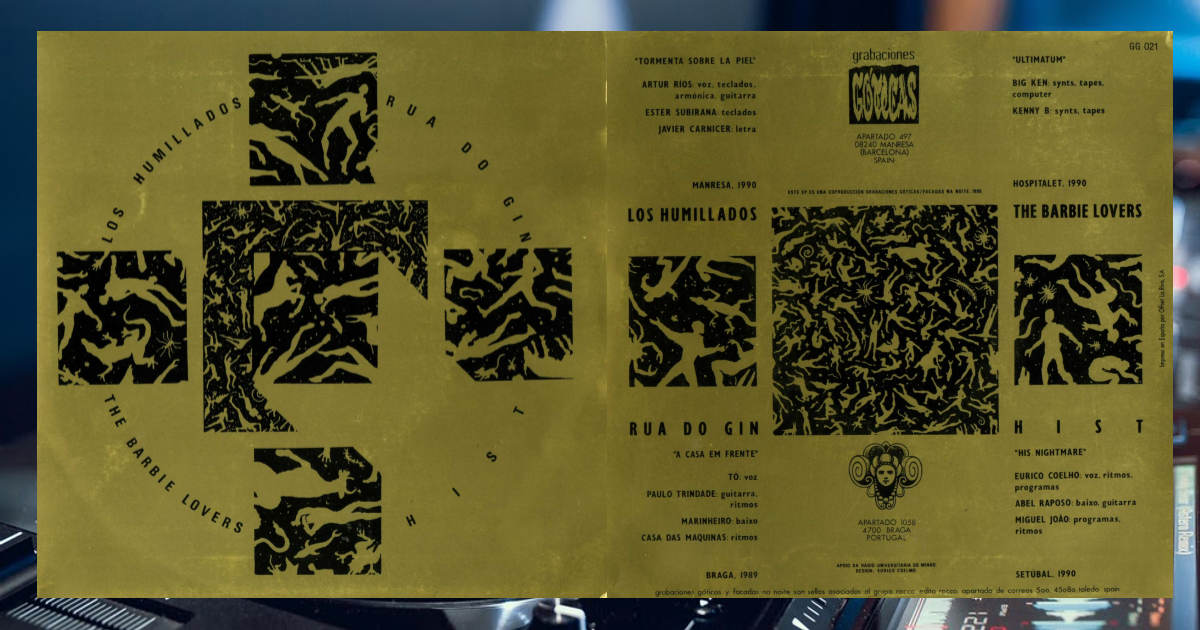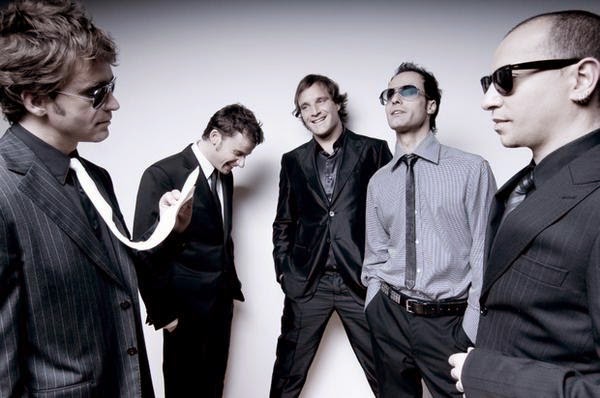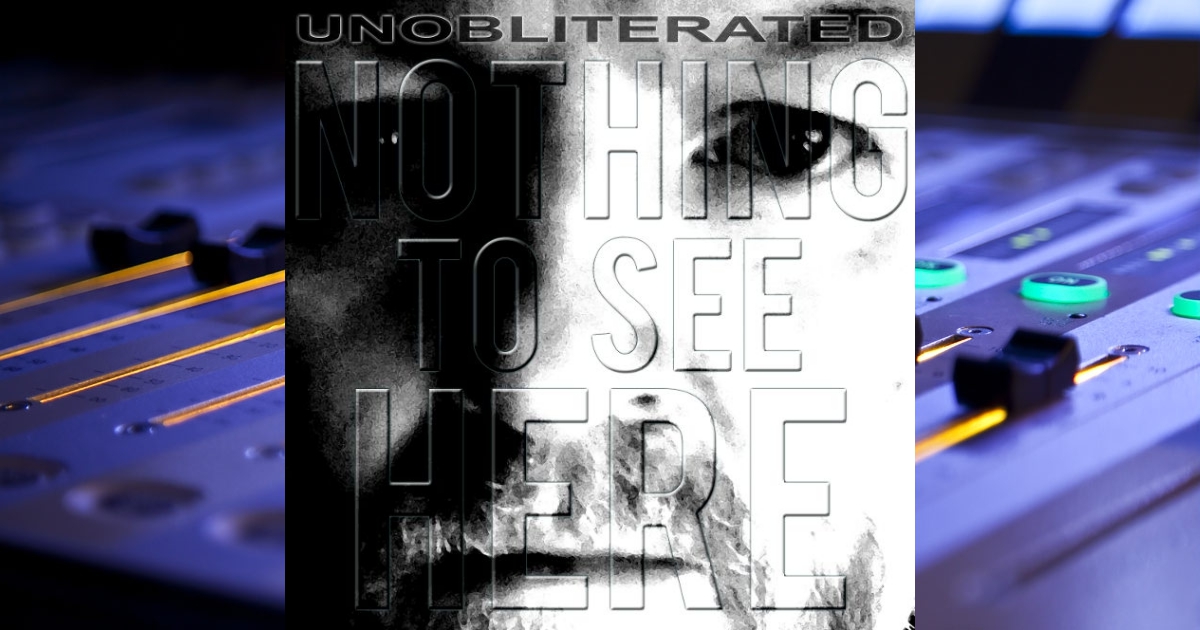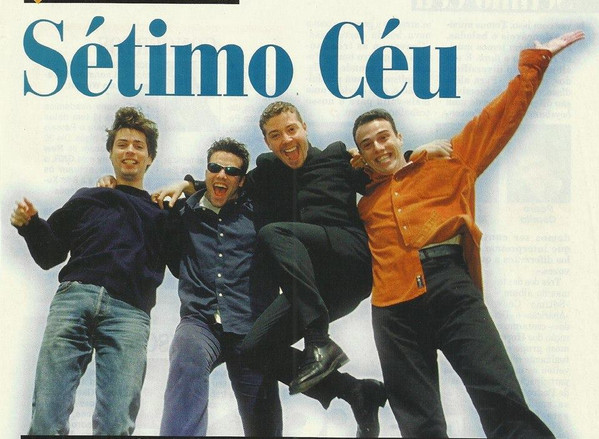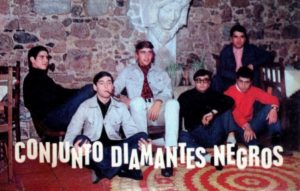In 1986, in the streets of Braga, Rua do Gin emerged, born from embryonic projects like Pandemónio, which themselves had roots scattered in various musical directions. More than a stable lineup, it was a living, mutable, and unpredictable organism, where musicians came and went according to their patience—or lack thereof. Among the occasional members, notable figures from Mão Morta stood out, such as Carlos Fortes (guitar) and Pinto Marroquino (keyboards). The band’s lineup was always fluid, marked by unexpected collaborations and an improvisational spirit that reflected the alternative cultural scene of the city.
The list of musicians who passed through Rua do Gin is extensive. One of the drummers, Tó, is no longer with us, and figures like Armanda attempted to give a “Velvetian” face to the project. The first vocalist to gain recognition was Paulo Sombra, whose recording of the track “Rebeca” in Lisbon remains in the archives as the group’s most critically appreciated output. To this day, it stands as an enigmatic episode in a lineup rarely tamed by the studio.
One of the band’s highlights was participating in the compilation À Sombra de Deus (cover by José Cristóvam), supported by the Braga City Council and now regarded as a mythic document of the local alternative scene. However, internal tensions were constant. Alexandre, a longtime bassist, abruptly left the project, instrument in hand, exemplifying the fragile personal dynamics within the band.
The central figure of Rua do Gin was always Paulo Trindade — guitarist, vocalist, composer, and the project’s driving force. He navigated the band through turbulent waters, handling both creative and logistical roles. Over the years, drummers like Berto Borges (Rongwrong), António Rafael (Mão Morta), Tó, and Manuel Leite (Rongwrong) passed through the group. Yet, the most reliable percussion proved to be the Yamaha R7/R11, nicknamed “Casa das Máquinas,” the only element able to maintain the frenetic rhythm without raising its voice.
Another pivotal moment came with Tó Animal (Um Zero Amarelo), who brought a strong vocal presence inspired by Cave-style intensity and a more politically engaged lyrical approach. With him, the band found a new identity. The first relatively stable lineup included Paulo Trindade (vocals, guitar), Manuel Leite (drums), Jorge Moreira (guitar), and Rui Mendes (keyboards, drums, later bass). Their debut concert took place at the Liceu Sá de Miranda during the Artenata festival, but the lineup soon fragmented again.
Rua do Gin’s recording history is marked by frustration and mystery. The track “A Casa em Frente” was recorded in Porto for a split EP featuring Portuguese and Spanish bands, released by Facadas na Noite, but the tapes disappeared before publication, fueling a legend of mistrust around the group. Only in 1993 did Paulo Trindade secure funding to record the band’s sole official album. The first mix, by Trindade, Jorge Moreira, and the sound engineer, accurately reflected the group’s raw intensity. A second mix, produced with foreign engineers, softened the sound—symbolically marking the end of a band that always lived between inspiration and collapse.

